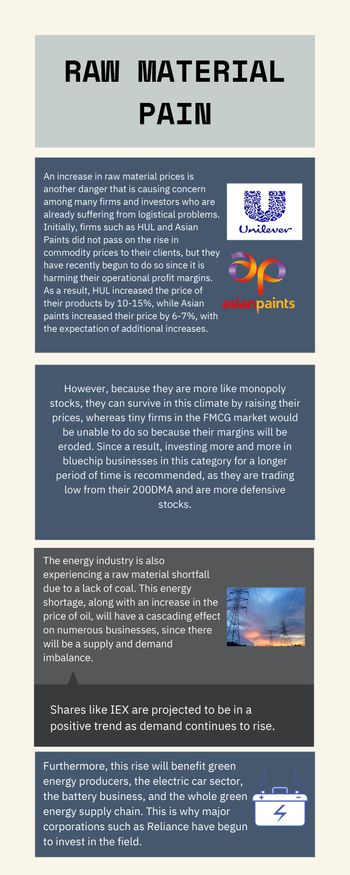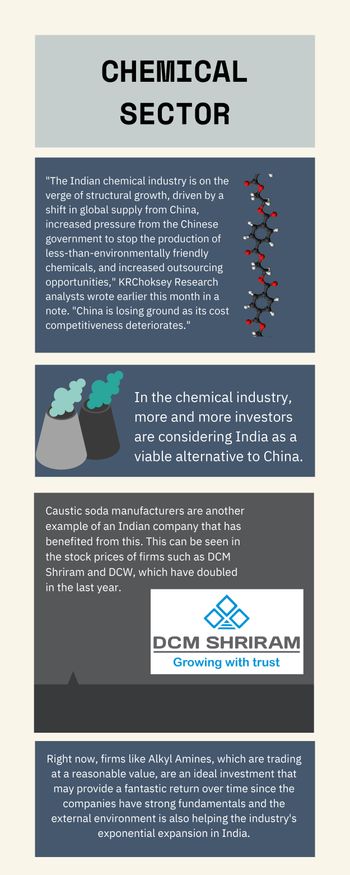Supply Chain Crises - Impact (2/2)
Retails Market Trouble-
The issues that retailers face throughout the world, with many choke spots in their supply chains just when they need to stock up for the busiest time of the year, are outlined. Many businesses have lowered their sales and profit projections, claiming that the crisis is harming their profit margins. Nike and Adidas are two examples of such companies.
Apart from container businesses, the crisis has benefited them the most since supply constraints have enhanced their bargaining power. In fact, they began charging a 60% premium on each container as compared to prepandemic levels. In the next months, this will be reflected in their margins as well as their stock price. Thus, a shipping business stock with good fundamentals and a big client base is an excellent investment for the next one to two years.
Raw material Pain-
An increase in raw material prices is another danger that is causing concern among many firms and investors who are already suffering from logistical problems. Initially, firms such as HUL and Asian Paints did not pass on the rise in commodity prices to their clients, but they have recently begun to do so since it is harming their operating profit margins. As a result, HUL increased the price of their products by 10-15%, while Asian paints increased their price by 6-7%, with the expectation of additional increases. However, because they are more like monopoly stocks, they can survive in this climate by raising their prices, whereas tiny firms in the FMCG market would be unable to do so because their margins will be eroded.
The energy industry is also experiencing a raw material shortfall due to a lack of coal. This energy shortage, along with an increase in the price of oil, will have a cascading effect on numerous businesses, since there will be a supply and demand imbalance. Shares like IEX are projected to be in a positive trend as demand continues to rise. Furthermore, this rise will benefit green energy producers, the electric car sector, the battery business, and the whole green energy supply chain. This is why major corporations such as Reliance have begun to invest in the field.
❮
❯

